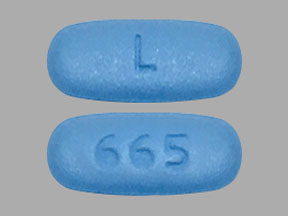
Deferasirox Coupons & Savings Card – Discount Prices from $91.10
Generic for: Exjade, Jadenu, Jadenu sprinkle
Deferasirox is a medication designed to manage excess iron in the body, primarily due to frequent blood transfusions or specific blood disorders like non-transfusion-dependent thalassemia. It is suitable for patients aged 2 and older who receive regular transfusions, as well as those aged 10 and older with the genetic condition, NTDT, even if they do not require transfusions. This drug belongs to a group of medications called iron-chelating agents. It functions by binding to excess iron, facilitating its removal through stool. Available in various forms such as tablets (Jadenu), dissolvable tablets (Exjade), and granules (Jadenu Sprinkle), Deferasirox is typically taken daily over a prolonged period to effectively reduce iron levels, which can take several months. By reducing iron accumulation, this medication helps lower the risk of serious health issues like heart failure, liver disease, and diabetes. Common side effects include stomach pain, nausea, and diarrhea. Always consult healthcare professionals before starting any medication to ensure it is safe and appropriate for your condition.
Our coupons are free to use. Before paying, show the pharmacist your Deferasirox savings card to get your free discount. Use our filters below to edit the prescription box to match your needs. The Deferasirox prices will update based on your prescription needs. Above our Deferasirox coupons, you can change your location to see pharmacy prices and costs in other areas. We're here to help you buy Deferasirox at the lowest price with our prescription discount card.
My prescription
Edit
360MG, Deferasirox (60 Tablets)
Select pharmacy

CVS
$9135.47
COUPON PRICE
Albertsons
$91.10
COUPON PRICE
Walgreens
$102.00
COUPON PRICE
Walmart
$120.61
COUPON PRICEDeferasirox savings card
Show this card to your pharmacist
Albertsons
$91.10
BIN
ID
PCN
GRP
019876
LHBBCCAD61
CHIPPO
LHX
Powered by
Deferasirox is a medication designed to manage excess iron in the body, primarily due to frequent blood transfusions or specific blood disorders like non-transfusion-dependent thalassemia. It is suitable for patients aged 2 and older who receive regular transfusions, as well as those aged 10 and older with the genetic condition, NTDT, even if they do not require transfusions. This drug belongs to a group of medications called iron-chelating agents. It functions by binding to excess iron, facilitating its removal through stool. Available in various forms such as tablets (Jadenu), dissolvable tablets (Exjade), and granules (Jadenu Sprinkle), Deferasirox is typically taken daily over a prolonged period to effectively reduce iron levels, which can take several months. By reducing iron accumulation, this medication helps lower the risk of serious health issues like heart failure, liver disease, and diabetes. Common side effects include stomach pain, nausea, and diarrhea. Always consult healthcare professionals before starting any medication to ensure it is safe and appropriate for your condition.
Our coupons are free to use. Before paying, show the pharmacist your Deferasirox savings card to get your free discount. Use our filters below to edit the prescription box to match your needs. The Deferasirox prices will update based on your prescription needs. Above our Deferasirox coupons, you can change your location to see pharmacy prices and costs in other areas. We're here to help you buy Deferasirox at the lowest price with our prescription discount card.
More prescriptions for iron overload
coupons from$1514.23Save 82%
coupons from$1514.23Save 82%
coupons from$16.40Save 88%
coupons from$129.30Save 90%
coupons from$24.74Save 96%
coupons from$91.10Save 36%
More prescriptions for iron overload
Deferiprone Save 82%coupons from $1514.23
Ferriprox Save 82%coupons from $1514.23
Deferoxamine Save 88%coupons from $16.40
Exjade Save 90%coupons from $129.30
Deferasirox Granules Save 96%coupons from $24.74
Jadenu Save 36%coupons from $91.10
Deferasirox Granules (Deferasirox) dosage forms
Use our Deferasirox Granules (Deferasirox) 90MG coupon with prices from $19.86 for 30 Tablets. You can also use our Deferasirox Granules (Deferasirox) 180MG coupon with prices from $36.99 for 30 Tablets. We have a Deferasirox Granules (Deferasirox) 360MG coupon with prices from $91.10 for 60 Tablets. You can use our Deferasirox Granules (Deferasirox) 360MG coupon with prices from $53.05 for 30 Tablets.
Dosage Quantity Price from Per unit 90MG 30 Tablets $19.86 $0.66 180MG 30 Tablets $36.99 $1.23 360MG 60 Tablets $91.10 $1.52 360MG 30 Tablets $53.05 $1.77
| Dosage | Quantity | Price from | Per unit |
|---|---|---|---|
| 90MG | 30 Tablets | $19.86 | $0.66 |
| 180MG | 30 Tablets | $36.99 | $1.23 |
| 360MG | 60 Tablets | $91.10 | $1.52 |
| 360MG | 30 Tablets | $53.05 | $1.77 |
